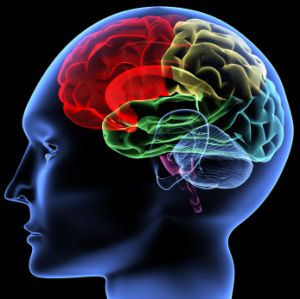 Does religious belief help reduce anxiety over errors? And, if so, how do non-believers cope with the blunders and slip-ups which riddle our everyday lives? A recent study conducted at the University of Toronto Scarborough, and published in the journal Psychological Science, suggests that faith in a divine being or higher consciousness does indeed help reduce anxiety, but it also allows for the possibility that other belief systems provide a framework for non-believers to manage their day-to-day routines.
Does religious belief help reduce anxiety over errors? And, if so, how do non-believers cope with the blunders and slip-ups which riddle our everyday lives? A recent study conducted at the University of Toronto Scarborough, and published in the journal Psychological Science, suggests that faith in a divine being or higher consciousness does indeed help reduce anxiety, but it also allows for the possibility that other belief systems provide a framework for non-believers to manage their day-to-day routines.
Researchers Alexa Tullet and Michael Inzlicht prompted test subjects to think about religion in several ways: first, subjects wrote about God to prepare themselves consciously, and second, they completed a religious-themed word puzzle to prepare themselves subconsciously. Finally, subjects completed a computerized problem-solving test. Afterward, the researchers measured small but significant reactions in a region of the brain known as the anterior cingulate cortex, which serves as a sort of alarm when things go wrong. "Believers", Inzlicht explains, "showed brain activity that was indicative of being less emotional, showing less distress to their own errors". Religious belief, or meditation and spiritual reflection, Inzlicht continues, serves as "a bulwark against defensive reactions to errors; it muffles the cortical alarm bell." The distress response, he adds, even holds when God is not at the center of one's mind.
However, the suppression of anxiety in response to errors does not seem to depend on belief in one god over another. Indeed, it does not matter whether subjects thought about Jesus, Buddha, or Allah people respond to problems with less anxiety if they reflect on religion and spirituality. "This pattern seems to hold for all religious people. It doesn't seem to be that it's only the Christians or Hindus or Muslims", but rather people of all religious faiths. Inzlicht points out. According to this observation, what seems to be the case is that religious belief functions as a general sort of template which serves an anxiety-reducing function, but which takes on specifically Christian, Islamic, Buddhist, or other traits. What seems to count is the contemplation of a higher power, not the form in which that power manifests.
But what about the non-religious, or people who do not think about God and religion in stressful situations? For non-believers, thinking about God actually increased the anxiety of their error-response. As Inzlicht notes, the tiny duration of such a response can add up over a lifetime, affecting the individuals happiness, longevity, and equanimity. So does this mean non-believers should start adopting religious and spiritual beliefs in order to improve their health? Not necessarily. Inzlicht points out that atheism and non-religious belief systems might also help reduce anxiety, since they also can provide a system of rules by which to handle life's problems. The distress response may have more to do with the act of believing than what one believes. Belief systems such as atheism, secular humanism, and political ideologies may also help reduce anxiety levels in response to problems. "I don't think this has to do with religion at all", Inzlicht suggests. "It has to do with having beliefs that structure, organize and navigate your world. Giving you instructions about what to do, when to do it and how to do it." So there does seem to be hope for non-believers who want to manage their stress without adhering to the tenets and doctrines of the world's religions. Moreover, a little bit of anxiety helps us survive.
Of course, the hypothesis that subscribing to non-religious belief systems also reduces anxiety still has to be tried and tested, but there is ample opportunity to do so in future. So the great thing seems to be that both religious and non-religious belief systems can, at least in theory, help people lower their anxiety levels in response to life's trials and mishaps, from missing the bus to receiving an emergency phone call about a loved one's injury. The point is that belief in some moral and ethical framework, whether religious or secular, offers guidelines to help the individual explain and cope with phenomena in the world around them. Whether or not a given belief system can be proven is a different matter entirely.
Source:


0 comments